Bachelor of
Exercise and Sport Science / Master of Clinical Exercise Physiology
Entry requirements
Key information
VIEWING DOMESTIC
VIEWING INTERNATIONAL
Entry requirements
Key information
overall
overall
Note: Part-time equivalent study options are not available for international students.
Are you passionate about using exercise to improve lives?
This five-year degree prepares you to become an accredited exercise physiologist, starting with a strong base in exercise and sport science before moving into advanced clinical training. You’ll learn to design exercise programs for people with chronic and complex conditions and build valuable industry connections for careers in hospitals, rehabilitation, and community health.
No.1 in Australia
in Health Services & Support for full-time employment, learner engagement and skills development
The Good Universities Guide 2025 (undergraduate), public SA-founded universities only
No.1 in SA
in Health Services & Support for learner engagement, skills development, graduate salary and full-time employment
The Good Universities Guide 2026 (undergraduate), public SA-founded universities only
No.1 in SA
for overall experience, skills development and teaching quality
The Good Universities Guide 2024 (postgraduate), public SA-founded universities only
Become an Accredited Exercise Physiologist
Progressing to the Master of Clinical Exercise Physiology prepares you for a career as an accredited exercise physiologist. You'll be equipped to design and deliver exercise-based programs that support lifestyle and behaviour change - helping to prevent and manage injury, chronic disease, and complex health conditions.
Salary
$75K
typical salary in Australia
Exercise Scientist
An accredited exercise scientist helps people improve their health and performance, and prevent injury and disease through tailored exercise programs.
With strong foundations in physiology, biomechanics, motor control and learning, and psychology, exercise scientists are experts in assessing, planning, and implementing safe, effective and individualised exercise training routines that meet and exceed the objectives of their clients.
Their roles include optimising performance in sports, improve health and wellbeing, prevent injuries and lifestyle diseases and building function in those living with disability.
Exercise Physiologist
An accredited exercise physiologist designs and delivers exercise programs to prevent and manage conditions such as injury, cardiovascular disease, diabetes, depression, cancer and arthritis.
You may specialise in areas like cardiac rehabilitation or spinal cord injuries and work in clinics, homes, or virtually.
Your accreditation is recognised nationally and in countries like Canada and the UK, opening opportunities across metropolitan, rural, remote, or international settings.
Salary
$85K
typical salary in Australia
Job opportunities
2,275
in Australia, 2024
Sources: Jobs and Skills Australia, 2025 | Seek Australia, 2025
Accredited Exercise Physiologist
In a private practice clinic providing services under Medicare, Return To Work/Workcover, Department of Veterans Affairs, NDIS, Private Health Insurance or privately funded services.
Clinical Exercise Physiologist
In a hospital helping patients recover from acute and serious medical events.
Aged Care Health and Wellness
Support the health and wellness of elderly individuals.
Corporate Health
Develop programs to prevent injuries and promote health, creativity and productivity in the workplace.
Strength and Conditioning Coach
Apply cutting-edge, high-performance principles designing and delivering strength and conditioning programs in sporting clubs or private practices.
Sport and Exercise Science Research Lead or Assistant
Provide support in sport and exercise science projects.
Case Manager
Facilitation of safe return to work within a worker’s compensation framework.
Rehabilitation Coordinator
Coordination and triage of a worker, their employer and their treatment team after workplace injury.
Potential employers:
- Hospitals
- Community health units
- Workplaces
- Gymnasiums
- Aged-care facilities
- Disability service organisations
- Sporting clubs and associations
- Private health clinics
- Return to work providers
- Schools, universities and TAFE
- Sporting academies
- Not-for-profit or community organisations
What will you study to start your career in exercise physiology?
Study a variety of core topics and electives and get hands-on experience with professional placements.
- Year 1
- Year 2
- Year 3
- Year 4
- Year 5
In your first year, you’ll cover anatomy, exercise and sports science, prescription, nutrition, and physical activity, while building research and study skills to support your success at university and beyond.
Year 1 - Core topics
Your first year might include the following topics. For exact topic information, visit the course Handbook.
In your second year, you'll study core topics such as motor control, sports nutrition, exercise physiology, health psychology and biomechanics.
Year 2 - Core topics
Your second year might include the following topics. For exact topic information, visit the course Handbook.
- Motor learning and control
- Research and study skills
- Physical activity and health
- Human physiology
- Sports biomechanics
- Health: a psychological perspective
- Exercise physiology
- Nutrition for sports performance
In your third year, you'll undertake advanced studies in exercise and sport science, body systems, behaviour change, and legal aspects of health care as well as workplace experience.
Year 3 - Core topics
Your third year might include the following topics. For exact topic information, visit the course Handbook.
In your fourth and fifth year, you’ll study interprofessional practice, clinical exercise assessment, chronic and complex disease management, advanced exercise prescription, neurological and musculoskeletal injury management, and complete clinical placements in metropolitan or rural and remote locations.
Year 4 - Core topics
Your fourth year might include the following topics. For exact topic information, visit the course Handbook.
In your fourth and fifth year, you’ll study interprofessional practice, clinical exercise assessment, chronic and complex disease management, advanced exercise prescription, neurological and musculoskeletal injury management, and complete clinical placements in metropolitan or rural and remote locations.
Year 5 - Core topics
Your fifth year might include the following topics. For exact topic information, visit the course Handbook.
Accreditation or Professional Recognition
This program is accredited by Exercise and Sports Science Australia.
Graduates of the Bachelor of Exercise and Sport Science / Master of Clinical Exercise Physiology double degree are eligible to apply to be recognised as an accredited exercise physiologist and accredited exercise scientist.
Boost your knowledge with an Honours in Health Sciences.
The Bachelor of Health Sciences (Honours) is a one-year full-time (or two-years part time) program designed to extend your research skills, critical analysis, and project management.
This program allows you to specialise in a health discipline of your choice, such as nursing, midwifery, physiotherapy, optometry, nutrition, disability, or exercise and sport science. You'll work closely with experienced researchers on projects that aim to contribute to health practices and systems.
Honours study focuses on developing your research, communication, and presentation skills, preparing you for a career in health research or further academic pursuits.
PhD Candidate Tom Brennan shares his journey studying an Honours in Health Sciences and his continuation to a PhD.
No.1 in Australia
in Health Services & Support for full-time employment, learner engagement and skills development
The Good Universities Guide 2025 (undergraduate), public SA-founded universities only
No.1 in SA
in Health Services & Support for learner engagement, skills development, graduate salary and full-time employment
The Good Universities Guide 2026 (undergraduate), public SA-founded universities only
No.1 in SA
for overall experience, skills development and teaching quality
The Good Universities Guide 2024 (postgraduate), public SA-founded universities only
Discover South Australia.
Where world-class education meets laid-back coastal living. With pristine beaches, acclaimed wineries, and vibrant festivals at your doorstep, South Australia offers an unmatched student experience.
Photo credit: SATC
Get inspired.
Discover more about Flinders University’s Bachelor of Exercise and Sport Science and Master of Clinical Exercise Physiology.
From Classroom to Competition
Hear about how Cody Lindsay, a lecturer in exercise and sport science, applies his teaching and research into his own training as an athlete to optimise and improve performance.
“The practical learning, expert lecturers, and industry connections have been invaluable in preparing me to work with athletes and individuals at all levels.”
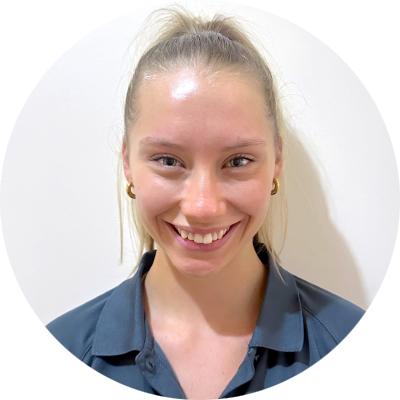
Zianna Chesterfield
Bachelor of Exercise and Sport Science / Master of Clinical Exercise Physiology
“It was a huge honour to be offered my current role in rehabilitation of paediatric brain injuries after a Flinders work placement. ”
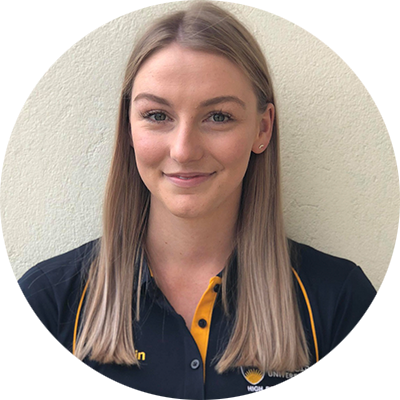
Caitlin Keith
Bachelor of Exercise and Sport Science / Master of Clinical Exercise Physiology graduate
Need support?
International Student Services (ISS) is the first point of contact for international student support. The university also offers everything from cultural, health, and wellbeing services, to academic support.
Campus tours
Take a virtual tour of our campuses, guided by your fellow international students.
FUSA
Flinders University Student Association (FUSA) is the heart of the Flinders Experience. FUSA is where you'll find out about events, club memberships, and extracurricular activities.
Accommodation.
Adelaide has many accommodation options for international students. You can choose to live on campus, at our city accommodation provider The Switch, or in rental accommodation.
Flinders offers a vibrant, fun, supportive uni experience you’ll remember for a lifetime.
Need support?
From cultural, health and wellbeing services, to study and financial support, enrolment advice and more, we’re here to help.
Student clubs
Flinders University Student Association (FUSA) is the heart of the Flinders Experience. FUSA is where you’ll find out about events, club memberships and extracurricular activities.
Campus facilities
Flinders’ campuses are hubs of activity, with retail and food outlets, library spaces, study and chill spaces and more.
Learn from the experts.
Our incredible teaching and professional staff are experts in their fields and well-connected to the industry.
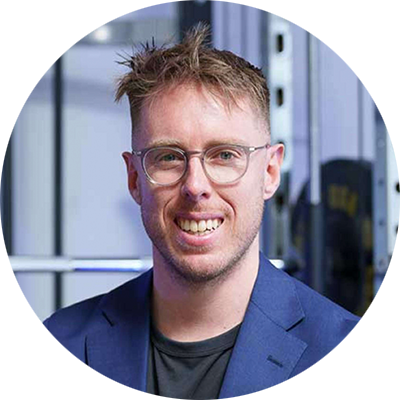
Academic Lead: Dr Matthew Wallen
Dr. Matthew Wallen PhD, AES, AEP is a Senior Research Fellow and Deputy Lead of the Cancer Survivorship Program at Flinders University and is the Academic Lead for the Exercise Science and Clinical Exercise Physiology within the College of Nursing and Health Sciences at Flinders University. His research focuses on lifestyle interventions, prehabilitation, and physical function assessments to improve outcomes for cancer patients and transplant recipients. He’s published over 55 articles and attracted $11M in research funding.
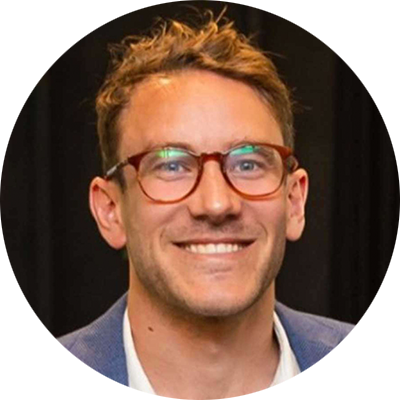
Placement Education Coordinator, Undergraduate, Exercise and Sport Science: Chris Rawling
Chris Rawling is a dual accredited exercise physiologist and applied sports scientist dedicated to helping individuals with injuries and illnesses achieve their sporting, performance, and lifestyle goals. He seamlessly bridges the principles of Exercise is Medicine with strategies to optimise performance. As a Lecturer at Flinders University, Chris combines theory with practical application, delivering engaging and relevant learning experiences designed to prepare students for successful careers in their chosen fields.
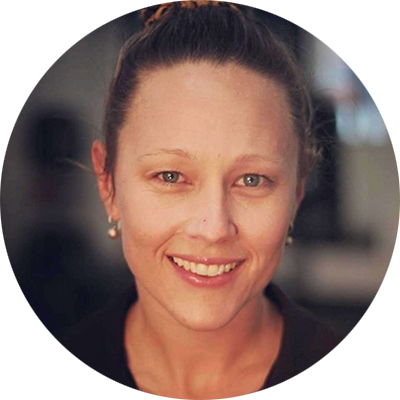
Course Coordinator Clinical Exercise Physiology: Dr Holly Evans
Dr. Holly Evans is the Course Coordinator for the Master of Clinical Exercise Physiology at Flinders University, where she also lectures in exercise science and exercise physiology. With a PhD in exercise oncology, her research focuses on exercise during cancer treatment and survivorship to improve outcomes. She is committed to supporting students' academic, professional, and personal growth.
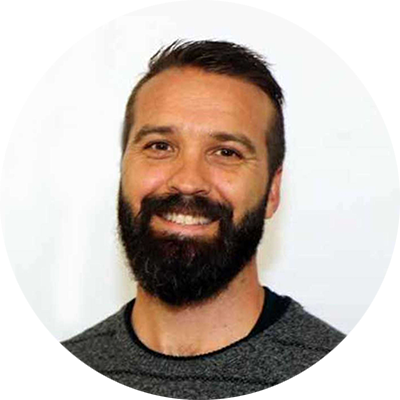
Course & Placement Coordinator – Exercise & Sport Science & Clinical Exercise Physiology (PG): Nathan Chesterfield
Nathan Chesterfield is an accredited exercise physiologist with more than 20 years spent across sport, health and clinical areas of practice who brings vast experience in a broad range of settings along with an extensive network of professional colleagues and industry connections. Along with his currency in clinical practice Nathan is dedicated to coaching, teaching and mentoring emerging allied health professionals. Nathan believes in exercise as a basis not only for improved health and quality of life, but for driving personal and academic excellence.
Gain real world experience.
The degree provides you with practical experience that prepares you for the workforce.
Undertake a compulsory 140-hour placement practicum in the Bachelor of Exercise and Sport Science, preparing you with interdisciplinary skills and knowledge of health, sport and exercise frameworks.
Undertake a further compulsory 360 hours in clinical exercise physiology placement in the Master of Clinical Exercise Physiology.
Hands-on learning in action! Take a look at Jacob’s exercise & sport science journey.
Let’s get started on your Flinders’ experience.
We know not everyone begins uni the same way, so we offer a variety of pathways into Flinders.
Use the dropdown to tell us a bit about you.
Alternative pathways
UniTEST
If you’re in Year 12, taking the free uniTEST can help boost your chances of getting into Flinders.
Research Project B Pathway
Strong results in your Research Project B subject along with your Year 12 results can be considered for entry.
Year 12 Grades Entry
By using three of your best Year 12 grades, you can also gain a place in your course of choice.
School Recommendation Program
Your school’s recommendation about your academic performance may be considered as part of your admission.
If you started uni but didn't finish, you may be able to gain entry into Flinders with a higher education transfer.
Higher education transfer
If you’re studying at another university, you may be able to transfer to Flinders based on your Yr 12 results, current GPA or other factors.
If you've had TAFE or VET training, you may be able to continue your study with Flinders.
TAFElink
Even if you didn’t finish high school (Year 12), you may be able to study at Flinders through your TAFE/VET qualification.
Dual offer pathways
You may be able to complete a TAFE SA course and have guaranteed entry into Flinders.
Credit transfer
The TAFE/VET stud you’ve already done may be able to be used as credit towards a Flinders’ course.
No ATAR? No worries. If you've got work or life experience, there are pathways into Flinders.
Flinders Foundation Studies
The Foundation Studies Program is free and guarantees entry to a range of degrees.
Skills for Tertiary Admissions Test (STAT)
The STAT is a 2-hour multiple choice test that assesses your abilities.
Year 12 qualifications
If you completed Year 12 more than two years ago you can still use your results to apply.
Concerned about your ATAR? If it doesn't meet the course requirement, or if you don't receive one, we offer alternative pathways to admission. Contact us to discuss your options—we're here to help.
Students who hold a Bachelor of Health Sciences from Flinders University, or equivalent qualification from another institution, are not eligible to apply for this degree and are encouraged to apply for the Master of Clinical Exercise Physiology (SATAC code 2CM224).
- Entry requirements
- Application options
If you don’t meet our English language entry requirements and need to improve your English language proficiency, you can do so through Flinders University Academy – or our approved English Language Instruction Course for Overseas Students (ELICOS) providers.
This means that you can attend the required English language tuition at approved ELICOS providers and gain direct entry into university without an IELTS or TOEFL test.
If you don’t meet our academic entry requirements, you can still gain entry to Flinders University through Flinders University Academy. With a range of diplomas, foundation and English language courses, students can find a direct pathway into the destination degree of their choice.
How to apply
Select your course.
Check entry requirements.
Check your eligibility for credit.
Obtain certified documents.
Submit your application and documents.
Application options.
Apply online
Follow up our step-by-step guide to help you with your application to study at Flinders.
Find an agent
Our registered education agents around the world understand the university system and will guide you through the application process.
Contact us
Get in touch with our team to discuss your preferences, career options, pathways, and course and entry requirements. We are here to ensure you have everything you need to choose the right degree for you.
Don't meet academic requirements? Don't worry. We'll help you get there.
Preparatory courses
If you lack required English proficiency, improve through Flinders University Academy or approved ELICOS providers for direct university entry without IELTS/TOEFL tests.
Flinders University Academy
If you do not meet entry requirements for your desired degree, Flinders University Academy will provide you with a direct pathway into the destination degree of your choice.
Frequently asked questions.
Over the years, many questions have been asked by students before. For the quickest answers view our frequently asked questions or browse the full list @ Ask Flinders.
Yes! The exercise and sport science and exercise physiology are fast-growing sectors. With growing clinical guidelines around the use of exercise for health and wellness as well as management of chronic diseases in the community, this presents exciting opportunities.
Opportunities exist in hospitals, community health units, workplaces, gymnasiums, aged care facilities, private health clinics, schools and not-for-profit organisations.
You may choose to study the Bachelor of Exercise and Sport Science either full time (3 years) or part time (up to 5 years). The Master of Clinical Exercise Physiology must then be studied full time over 2 years.
This means the double degree can take 5 years if the bachelor is studied full time, or up to 7 years if the bachelor is studied part time.
Once you have completed a minimum of 18 units, you may apply for a higher degree transfer via SATAC for the Bachelor of Exercise and Sport Science combined with the Master of Clinical Exercise Physiology (BESS/MCEP).
There are a range of alternative ways to gain entry to most undergraduate courses besides meeting the minimum required ATAR. Details of other pathways can be found at: flinders.edu.au/study/pathways
These include:
Doing the uniTEST, an aptitude test designed to assess the generic reasoning and thinking skills you need to be successful in university level studies. As a year 12 student you can use uniTEST results in combination with your ATAR to increase your opportunity to gain entry into any of our courses, with the exception of the Bachelor of Clinical Science/Doctor of Medicine.
You can apply through SATAC to sit the Skills for Tertiary Admissions Test (STAT), held in June.
You can also consider applying for courses with lower requirements, as many courses will allow you to transfer once you have completed a specified amount of the course. This is done through Flinderslink. If you accept an offer at another university, and perform well, you can use your grade point average (GPA) to transfer to Flinders University. You may even be eligible for credit.
Aboriginal and Torres Strait Islander applicants can gain admission to Flinders University through the Indigenous Admissions Scheme flinders.edu.au/study/pathways/indigenous-admissions-scheme
- Applications are completed via SATAC
- Visit: satac.edu.au
The table below shows ATAR and Selection Rank data for students offered a place wholly or partly on the basis of ATAR commencing in Semester 1, 2025. It is limited to applicants that have recently completed secondary education (within the last two years). Data may reflect multiple courses available within a suite of courses.
Notes:
<5 – less than 5 ATAR based offers made
N/A – This course uses additional selection criteria and therefore Selection Rank is not published
| ATAR-based offers only across all offer rounds | ATAR - Excluding adjustment factors | Selection Rank - ATAR plus any adjustment factors |
|---|---|---|
| Highest rank to receive an offer | 95.20 | 99.95 |
| Median rank to receive an offer | 76.17 | 80.42 |
| Lowest rank to receive an offer | 57.75 | 61.00 |
The table below gives an indication of the likely peer cohort for new students in this course. It provides data on students who commenced study in this course in Semester 1, 2025 including those admitted through all offer rounds and international students studying in Australia. Applicant background groupings are based on educational background, not basis of admission. Data may reflect multiple courses available within a suite of courses.
Notes:
<5 – the number of students is less than 5
N/P – Not published: the number is hidden to prevent calculation of numbers in cells with less than 5 students
| Applicant background (Semester 1, 2025) | Number of students | Percentage of all students |
|---|---|---|
| Higher education study (includes a bridging or enabling course) | 44 | 37% |
| Vocational education and training (VET) study | 5 | 4% |
| Work and life experience | <5 | <5 |
| Recent secondary education - Admitted solely on the basis of ATAR (regardless of whether this includes the consideration of adjustment factors such as equity or subject bonus points) | 28 | 24% |
| Recent secondary education - Admitted where both ATAR and additional criteria were considered (e.g. portfolio, audition, extra test) | <5 | <5 |
| Recent secondary education - Admitted on the basis of other criteria only and ATAR was not a factor (e.g. special consideration pathways) | 17 | 14% |
| International Students | 18 | 15% |
| All students | 118 | 100% |
Frequently asked questions.
Get in touch with us to discuss your preferences, career options, pathways and course and entry requirements. We are here to ensure you have everything you need to choose the right degree for you.
The type of documents you will need for your international application depends on what course you are applying for and which country you are a citizen of. Course requirements are stated on each course webpage. Examples of documentation you might expect to provide for your international application include a copy of personal identification, academic transcripts or a resume.
Once you have received your Confirmation of Enrolment (CoE) letter from Flinders University, you should apply for your visa as soon as possible as visa processing times can vary. You will receive your CoE letter after you have applied to study at Flinders, accepted your offer and paid the semester tuition fee.
No. Part-time study is currently not available for international students due to visa conditions.
No. Online study is currently not available for international students due to visa conditions.
If you don’t meet our English language or academic entry requirements, you can still gain entry to Flinders University through our on-campus pathway provider Flinders University Academy. Alternatively, you can improve your English language proficiency through our approved English Language Instruction Course for Overseas Students (ELICOS) providers.
You can apply to study as an international student directly through Flinders University or an authorised agent in your country.
If you are from one of the countries listed here, you are required to apply via an education agent. If you reside onshore in Australia, you will not require an agent even if you are from the countries listed above.
Yes. As a student visa (subclass 500) holder, you and your dependents (family members) can work up to 48 hours a fortnight when your course of study is in session. If you have started a master degree by research or doctoral degree, this rule does not apply to you and working hours are not restricted.
Our dedicated International Student Services (ISS) team provide a range of programs supporting your enrolment, study and social life, as well as a referral service to facilities on campus and within the local community.
![]()
Sturt Rd, Bedford Park
South Australia 5042
South Australia | Northern Territory
Global | Online
CRICOS Provider: 00114A TEQSA Provider ID: PRV12097 TEQSA category: Australian University








